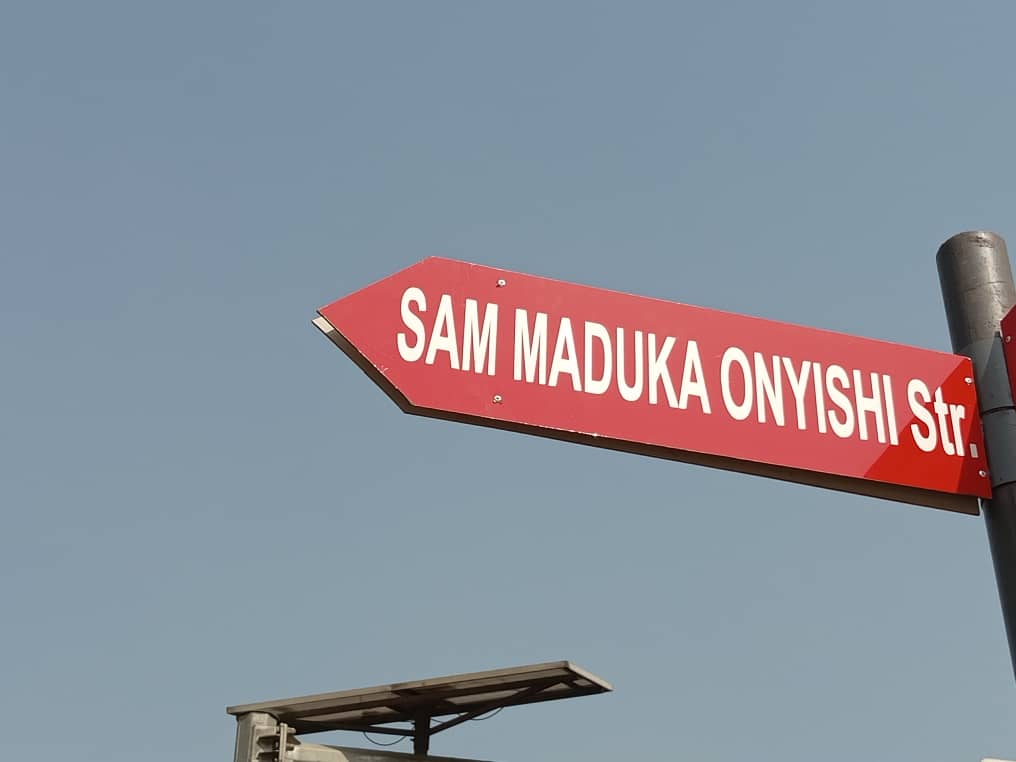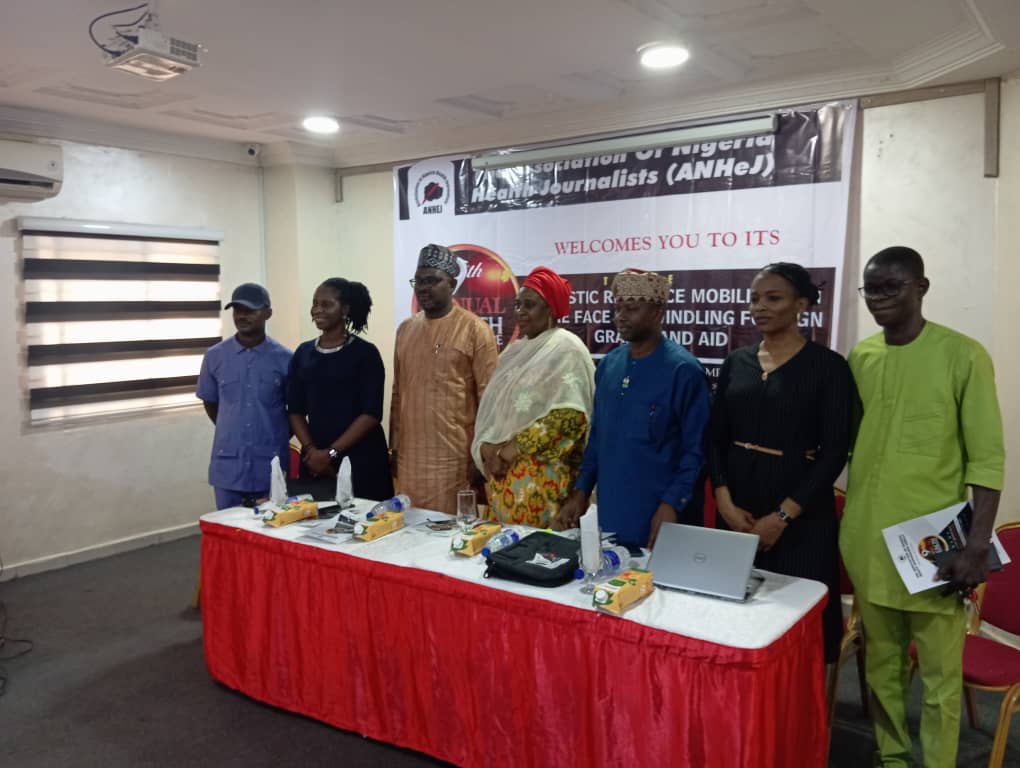NEWS
Lawyers Want ”Archaic, Obolete” Laws Reviewed to Reflect Current Realities

Some Abuja-based lawyers on Monday called for review of laws which provisions no longer reflect realities to advance justice administration in Nigeria.
The lawyers made the call in an interview with the News Agency of Nigeria.
They said that provisions of some laws had been overtaken by societal development.
Mr Friday Abu, a lawyer said some laws are obsolete, particularly in terms of the circumstances or situations they intend to regulate.
Abu said that for people to consider as adequate, laws that regulate their conduct and activities, such laws must be at par with the occasion it was provided for.
“ The law is made for the people and not the people for the law.
Therefore, any law regulating the conduct and activities of the people in a particular area must be such that the people will regard as adequately meeting the occasion in order for such law to attain the desired effect or efficacy as the case may be.“There are several obsolete laws in Nigeria that require either a total repeal or amendment to bring them in line with the current reality as regards the situations they are meant to regulate.
“One example of such obsolete laws requiring substantial amendment is the Entertainment Tax Act CAP 498 Laws of the Federation of Nigeria 2004.
“A closer look at this Act (Law) will reveal that the Law must have been passed during the colonial era because the Act mentioned entertainment centers like casinos, gaming events, horse racing events and the likes.
“In addition to the fact that this Law mentioned archaic places of entertainment, the fees specified as entertainment fees/tax are so extreme that if the government is to embark upon collecting the fees as mentioned in the Act, the cost of collecting the fees will be much higher than the fees collected at the end of the day.
”This law which is applicable in the FCT, Abuja and the Federal Capital Territory Administration (FCTA), headed by the Minister of the FCT ran into difficulties when it attempted to use the said Law (Act) to start charging and collecting tax from entertainment centers in the FCT including clubs, casinos, Bars and events centres.
“The former Minister of the FCT, Senator Bala Mohammed attempted to include events centers and gardens and halls in the Act by passing The Entertainment and Events Centers Regulations Act in 2014
“This action by the FCT administration was challenged by some hotels and events centers who dissected the law and realized that the Act did not mention Halls within hotels, Gardens and events centers/Halls”, Abu added.
Another legal practitioner, Seprebofa Oyeghe said “Sales of Goods Act (SOGA), which is about 128 years old was fashioned along the Britain, Scotland, Ireland commercial climate and being a Statute of General Application, was received upon our independence and is the extant law that governs commercial transactions bordering on sale of goods.
“This ancient law Act which is a relic of our colonial history is totally out of touch with modern realties and the dynamics of the commercial world.
”The place of e-Commerce, cyber laws and the various rights, liabilities of buyers, sellers and principles that applies in commercial transactions is totally out of touch in the old Sale of Goods Act
According to Oyeghe, “ another law that needs urgent amendment that readily comes to mind is the Hire-Purchase (Amendment) Act 1970”.
”This is the law that governs Hire-Purchase transactions. It was enacted in 1965 and amended in 1970.
“In spite of the far reaching changes and advancement in commerce and industry, the extant still remain the 1970 Act which was only recompiled in the 2004 Laws of the Federations as Cap. H4, LFN, 2004.
”The implication, even without saying is that, a lot of problems confront hire-purchase transactions.
“The introduction of technology, the dynamism in the business environment coupled and the increasing globalisation of businesses/transactions and new models of commercial transactions have nearly rendered the Hire-Purchase Act irrelevant, archaic and outdated piece of legislation that cannot fix the challenges in the modern business world.
“Section 1 of the Act provides that: all hire-purchase agreements and credit-sale agreements, other than agreement in respect of motor vehicles, does not exceed two N2,000
“This monetary fixation as well as others like twenty-kobo for expenses on memorandum or note from hirer to the owner now sounds ridiculous owing to the current value of money.
”One can only but imagine how anyone will undertake hire-purchase agreements other than motor vehicle, valued at not more than N2,000.
”he monetary limit is strange, offensive, unrealistic”, the legal practitioner opined.
Another grouse Oyeghe had with this Act was also in the requirement of personal signature of the hirer (while the owner can sign himself or by an agent) otherwise the owner would be unable to enforce the transaction.
”The different treatment of the parties on the issue of signing the hire-purchase agreement or note or memorandum appeared unfair, according to him.He also faulted that the Act did not take into account the place of online transactions relating to hire-purchase.
“The National Assembly and the National Law Reform Commission need to embark on a comprehensive review of the Act”, Oyeghe added.
In her opinion, Toyin Yimika said “the Land Use Act 1978 is one law too many that is outdated, obsolete, poorly drafted, poorly implemented and long overdue for an amendment.
“There is so much power granted to the governors which is unnecessary due to wide scale abuse. Sections 1, 34, 36 and several other provisions of the Act has been exposed to different interpretations.
“By Section 29, the governor who is expected to pay compensation upon revocation of rights in land. By Section 30, disputes with respect to dispute over compensation is referred to the Land Use and Allocation Committee, which is a Committee set up by the Governor, who equally appoints the members.
”That section of the Act contravenes natural justice which requires that no one should be a judge in his own case.
“The above provision is offensive, unconstitutional as it clearly ousts the power of court to entertain matters bordering on vesting of lands on governors.
“The above among several other defects, coupled the age of the Act, 43 years which to a large extent is no longer in consonance with modern reality, there is an urgent need for the National Assembly to embark on a comprehensive review of the Act”, she concluded.
Another lawyer, Josephine Ijekhuemen, said:”a clear example of an obsolete law is the criminalisation of bigamy in Nigeria”.
According to her, it is a criminal offence in Nigeria which is punishable by the criminal law.
“By law, bigamy, a by-product of polygamy, is a criminal offence punishable with imprisonment in Nigeria.
“It is an offence which arises from what is otherwise an incidence of marriage. You can see Section 370 of the Criminal Code,” she explained.
Ijekhuemen, a Principal Partner with Odikpo, Okpe and Associates, Lagos, however, said since the law was introduced in the criminal code, “I do not think that there has been a single case of conviction. It has simply become an obsolete provision.”
She said another obsolete provision due to lack of enforcement was Section 210 of the Criminal Code, Cap C38 of the Laws of the Federal Republic of Nigeria.
“This section provides that any person who is engaged in witchcraft practice as set out in subsections is guilty of a misdemeanor, and is liable to imprisonment for two years.
“There are also several other such legislations that are either outdated, unenforceable or not enforced,” she said.
The lawyer suggested that the only way to change the status of an obsolete law was to amend, repeal or expunge it from legislation.
“Remember the quarantine law has been in existence since the 1950s not enforceable until it was amended last year?
“This is because it was designed during the period of emergency and the situation then was more about public health than human rights and for many years, it wasn’t applied because there was no necessity until COVID-19 came.
“It was used to isolate people and was amended to allow it be in tune with today’s reality,” she explained.
Ijekhuemen stated that the amendment allows voluntary isolation rather than a near prison isolation for suspected cases.
“First Quarantine Act was in 1926 then amended in 1954 before the one amended last year.
“So from 1954 to 2020, it was obsolete,” she said.
According to her, another example is the Infectious Disease Act of 1908 which was obsolete until 2020 when coronavirus pandemic came.
“This law came alive when President Muhammadu Buhari signed the Infectious Diseases Regulations in 2020,” the Lagos-based lawyer said.(NAN)
NEWS
Street Named After Business Mogul, Sam Maduka Onyishi Unveiled in Asokoro

By David Torough, Abuja
Authorities in the Federal Capital Territory on Saturday honoured renowned entrepreneur and philanthropist, Chief Dr. Sam Maduka Onyishi, with the unveiling of a street named after him in Asokoro, Abuja.
Speaking at the event, the representative of the Abuja Metropolitan Management Council’s Department of Street Naming, Mr.
Charles Adikwu, said the honour was in recognition of Onyishi’s remarkable contributions to national development, job creation, and community upliftment.Adikwu described the Peace Mass Transit founder as “a businessman who built his enterprises from scratch to the top,” noting that Onyishi has grown into one of Nigeria’s most influential private-sector employers.
The honouree is the Chairman of Globus Bank, Peace Microfinance Bank, Peace Oil & Gas, Peace Mass Transit, and the Chancellor of Sam Maduka University, Akwegbo, Enugu. According to Adikwu, Onyishi’s businesses have collectively provided employment to over 150,000 Nigerians, making him “one of the highest employers of labour in the country.”
Adikwu added that naming streets after distinguished Nigerians also enhances security and navigation within Abuja communities.
“If anything happens along this route, it can now be easily identified as taking place at No. 7 Sam Maduka Onyishi Street,” he said. “Before now, locating places involved unnecessary descriptions that sometimes complicated emergency responses.”
Also speaking, the Regional Manager of Peace Mass Transit (Northern Region), Mr. Ngwu Jude Chinweike, said the gesture reflects government’s increasing willingness to recognise individuals who positively impact society.
He expressed delight that his principal was among those honoured, describing the development as a morale boost for communities and a reminder that meaningful contributions do not go unnoticed.
“The public will now understand that when you make positive impact in your community, government has a way of recognising your efforts,” he said.
Chinweike noted that the newly named street is already attracting interest from businesses and institutions, including security agencies, and assured that Peace Mass Transit and Onyishi’s other subsidiaries would support efforts to enhance the area’s outlook.
“Since the street bears his name, we will keep our eyes here and contribute to ensuring it looks good,” he added.
Chief Dr. Sam Maduka Onyishi, widely regarded for his philanthropy and transformative investment footprint, continues to maintain an active presence in transportation, finance, energy, and education sectors across the country.
NEWS
Experts Task Government on Increase in Domestic Funding

By Laide Akinboade, Abuja
Experts in the health sector, at the weekend agreed that even though foreign grants and aid remain highly valuable, it is imperative for the three tiers of government to increase domestic funding in Nigeria.
They agreed that it is only through the above the nation can build a resilient, domestically financed health system.
This was agreed at the 9th annual health conference organized by the Association of Nigeria Health Journalists (ANHeJ) in Abuja.
The theme of this year conference is ‘Domestic Resource Mobilization in the Face of Dwindling Foreign Grants and Aids’ .
Among those who spoke at the occasion, include, Special Adviser to President on Health, Dr.
Salma Ibrahim Anas, .Minister of State for Health and Social Welfare, Dr. Kunle Salako, representative from National Agency for Food and Drug Administration and Control, (NAFDAC), Dr. Matins Illuyomade,Salako who was represented by his Special Adviser, Dr. Babatunde Akinyemi, said Nigeria has benefited from substantial foreign health assistance, including over $6 billion from PEPFAR, $2.5 billion from the Global Fund, $1.5 billion from the World Bank, $1.2 billion from Gavi, and $1.6 billion from the Bill & Melinda Gates Foundation.
He stressed, that government initiatives under the Renewed Hope Agenda and the Nigeria Health Sector Renewal Investment Initiative (NHSRII), including the Basic Health Care Provision Fund (BHCPF), which has disbursed over N260 billion to states and the Federal Capital Territory since 2018, and the National Health Insurance Authority (NHIA) Act, mandating health insurance for all Nigerians.
He said, “The United States government, through PEPFAR, has invested over $6 billion in Nigeria’s HIV/AIDS response since 2004, with annual allocations averaging $400-450 million in recent years. In fiscal year 2023 alone, USAID (Now DoS) allocated approximately $535 million for health programs in Nigeria, covering HIV/AIDS, malaria, tuberculosis, and maternal and child health initiatives.
“The Global Fund to Fight AIDS, Tuberculosis, and Malaria has disbursed over $2.5 billion to Nigeria since 2003, making us one of the largest recipients globally. The World Bank currently supports our health sector with approximately $1.5 billion through various projects, including the $500 million Nigeria COVID-19 Action Recovery and Economic Stimulus Program and the $820 million International Development Association credit for primary healthcare strengthening. Similarly, Gavi, the Vaccine Alliance, has committed over $1.2 billion to Nigeria since 2001 for immunization programs, while the Bill and Melinda Gates Foundation has invested approximately $1.6 billion across various health interventions in Nigeria over the past two decades.
“The United Kingdom’s Foreign, Commonwealth and Development Office (FCDO), though reducing its overall aid budget, continues to invest significantly in Nigeria’s health system, particularly through the £210 million Health Systems Strengthening program. The European Union and its member states collectively provide approximately €100 million annually for health-related interventions, while the Government of Japan, through JICA, supports our health infrastructure development with grants averaging $30 million annually.
.Multilateral development banks and financial instruments have also remained vital partners; the World Bank in 2024 approved substantial concessional financing, including a major credit and complementary grant financing package that supports health outcomes and health system resilience across states and communities. Such financing is targeted not only at service delivery but at strengthening our ability to prevent, detect, and respond to emergencies”.
Salako noted, “Foreign grants and aid remain highly valuable and will continue to finance critical interventions for some time. But the future we must build is one where domestic resource mobilization, fiscal discipline, efficient spending, and innovative financing are the engines that sustain our national health priorities. The Government of Nigeria is already advancing legal and budgetary instruments, leaning on proven programme data, and working with partners to protect gains while we scale domestic financing.
“Our commitment is to ensure that no Nigerian is left behind during this transition, and that we convert a period of funding volatility into a long-term opportunity to build a resilient, domestically financed health system”.
The Minister of state also enumerated the innovative domestic financing efforts at the state and private sector levels.
“Lagos State allocates over 12% of its budget to health, Kaduna State’s contributory health scheme has enrolled 1.6 million residents, and Abia State has launched a diaspora health investment fund.
“The Private Sector Health Alliance of Nigeria and the Nigeria Sovereign Investment Authority contributed over N50 billion and $200 million, respectively, to health initiatives,” he said.
Dr. Salma, in her presentation, said, donor fatigue is real, and the inevitable graduation of Nigeria from various aid programs is approaching.
In his welcome address, ANHeJ President, Joseph Kadiri, said the conference theme, “Domestic Resource Mobilisation in the Face of Dwindling Foreign Grants and Aid,” underscores the urgent need to strengthen domestic financing, partnerships, and resilient health institutions.
Kadiri called on journalists to track government commitments, highlight gaps, and amplify the realities faced by Nigerian families.
NEWS
Bayelsa Urges NDDC to Complete Abandoned Akenfa Bridge Project

From Mike Tayese, Yenagoa
The Bayelsa State Government has called on the Niger Delta Development Commission (NDDC) to resume and complete the long abandoned Bridge Project in Akenfa Community, a suburb of the state capital city, Yenagoa
The Deputy Governor, Sen.
Lawrence Ewhrudjakpo, made the call while presiding over an enlarged meeting with representatives of the NDDC, community leaders of Akenfa Community and relevant government officials at his office in Government House, Yenagoa, on Thursday.The Deputy Governor has clarified that, although the state government decided to take over some neglected NDDC projects in the state, including the Polaku-Sabagreia Bridge, that of Akenfa was reverted back to the interventionist federal agency after a mutual discussion between the two parties.
Describing the Akenfa link-Bridge project as strategic and critical to pedestrians and vehicular movements in the oil-producing community, Senator Ewhrudjakpo informed that government officially communicated the re-handing over of the project to NDDC in a letter dated 10th March, 2025.
He empathized with the Akenfa community over the delay in the execution of the project, and urged the NDDC to expedite the process of completing it with a view to putting an end to commuting challenges facing the people.
His words: “The project has actually been sent back to the NDDC to handle. But the NDDC seems to be far away from the Akenfa Community. So they find it easier to come to us.
“We believe that the project has gone a long way. What is required to complete it may not be as much as what has gone in there.
“So, we felt that we should hàve this tripartite interaction to let the community know officially that the project is now in the hands of NDDC, and also to let the agency know that our community is agitated considering the long history of that project.”
Responding on behalf of the NDDC, the Bayelsa representative, Senator Deinyabofa Dimaro, said the Commission would review the entire project and have it captured in its 2026 budget for seamless execution.
Senator Dimaro, who promised to properly relate the issue to the Managing Director of the NDDC, Dr. Samuel Ogbuku, however, requested relevant documents from the State Government regarding the reversion of the project back to the NDDC.
Representatives of Akenfa Community who spoke at the meeting included, former Chief of Staff Government House, Yenagoa, Chief Dikivie Ikiogha, and a one-time paramount ruler of the community, Chief Isiya Albert.
Meanwhile, Senator Lawrence Ewhrudjakpo, has on behalf of the Governor constituted a tripartite contact committee involving the government, the NDDC and the Akenfa community to ensure the resumption and completion of the stalled Akenfa Bridge project.
Members of the committee include the state NDDC representative, Senator Deinyabofa Dimaro; the Commissioner for Special Duties (Central), Mandy Akpallo; and Chief Dikivie Ikiogha.
Others are the Technical Adviser to the Governor on NDDC Matters, Kuro Nyenye; Chief Isiya Albert; Secretary to the Akenfa Community, Wilson Mumeya, the Youth President, Moses Izibekiebo, as well as an engineer to be nominated by the Ministry of Works and Infrastructure.























